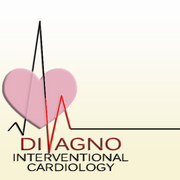What Is Congestive Heart Failure?

Congestive heart failure is a chronic condition in which fluid accumulates around the heart and impairs its ability to pump effectively. Though there is no cure for congestive heart failure, patients can still lead productive lives with regular cardiac care and treatment. Here’s what you need to know about this common condition that affects between one and two million Americans, including the symptoms and management strategies.
What It Is
The ventricles of the heart pump blood to the rest of the body. When the heart becomes weakened to the point that the ventricles can no longer pump enough blood to supply the body's cells with all the nourishment they need, congestive heart failure is the result. The reduction in blood flow causes fluids to back up and collect around the heart, lungs, and other internal organs. The most common causes of this condition are high blood pressure, coronary artery disease, problems with heart valves, smoking, and chronic alcohol abuse.
Symptoms
 In its earliest stages, congestive heart failure may exhibit no noticeable signs, but as the condition progresses, symptoms will become increasingly life-limiting. Some examples include fatigue; swelling in the legs and feet; an irregular heartbeat; wheezing and shortness of breathe; a congested cough; and dizziness. Once the condition has reached a critical point, one may experience chest pain, fainting, blue skin, and rapid breathing.
In its earliest stages, congestive heart failure may exhibit no noticeable signs, but as the condition progresses, symptoms will become increasingly life-limiting. Some examples include fatigue; swelling in the legs and feet; an irregular heartbeat; wheezing and shortness of breathe; a congested cough; and dizziness. Once the condition has reached a critical point, one may experience chest pain, fainting, blue skin, and rapid breathing.
Treatment
Cardiac care for congestive heart failure often starts with medications, including angiotensin-converting enzyme inhibitors, that open restricted blood vessels; beta-blockers that reduce blood pressure; and diuretics, which decrease fluid buildup. For more advanced cases, a cardiac care specialist might recommend surgery, such as angioplasty, which removes heart artery blockages, or valve repair, which improves blood-pumping function.
If you notice any signs of congestive heart failure, see a heart doctor at DiVagno Interventional Cardiology, MD, PA. With more than 20 years of experience, they provide cardiac care to patients throughout Bergen County, NJ. They offer comprehensive screenings and treatments for a wide variety of heart-related issues. Schedule an appointment by calling (201) 845-3535 or visiting their website.
About the Business


